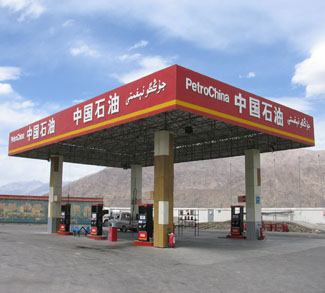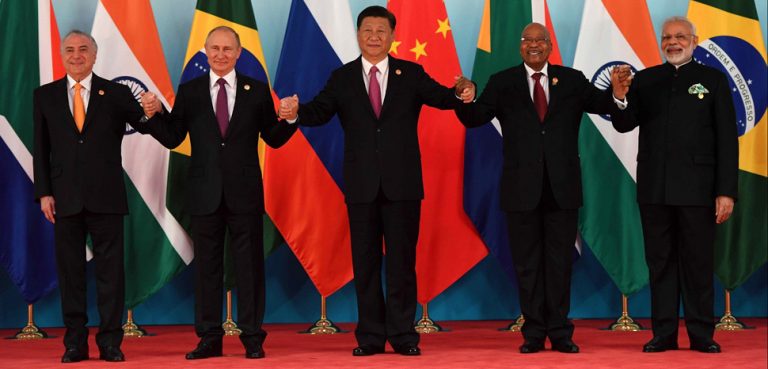A confluence of economic opportunity (developing the country’s vast mineral wealth) and political necessity (ensuring a stable Xinjiang) make post-NATO Afghanistan a perfect testing ground for China’s great power aspirations.
During a recent state visit to Afghanistan, Chinese Foreign Minister Wang Yi sent a clear signal of renewed Chinese political engagement by offering to mediate the peace process between the Taliban and Kabul.
His comments mark a departure from Beijing’s previous focus on the economic sphere in Afghanistan. Afghanistan’s mineral wealth has been valued at anywhere from $1-$3 trillion, and Chinese firms have been lining up to develop the country’s untapped potential. In 2007, the Metallurgical Corporation of China and the Jiangxi Copper Corporation invested $4.4 billion to develop what could be the second-largest copper deposit in the world at Aynak in Logar Province. Four years later, the China National Petroleum Corporation partnered up with Watan Oil & Gas to develop three oil blocks in the provinces of Sari-i-Pul and Faryab in northwestern Afghanistan – a project which brings an initial investment of $400 million.
What started as a push by individual Chinese state-owned companies is now attracting the attention of Beijing. In October 2014, the Chinese government extended around $300 million in loans, as well as professional training and scholarships for Afghan students. The money will be spent on infrastructure development. China’s “Silk Road Economic Belt” will further build on these efforts. Over $40 billion has been earmarked for the initiative, which hopes to revive the vibrancy of ancient trade routes linking China and Europe through Central Asia.
Security Interests
Beijing has long been concerned about the security implications of radical Islam in its restive Xinjiang province, and these concerns have only deepened as the transnational quality of movements like ISIS becomes more and more apparent. China and Afghanistan share a 97km-long border that, though it has remained closed to border traffic for almost a century, can still serve as a clandestine corridor for Uighurs moving in and out of China. Herein lies the primary security interest for Beijing – promoting cooperation on both sides of the border as a way to preclude Afghan insecurity feeding instability in Xinjiang.
China’s secondary interests are far more indirect and daunting from a policy standpoint: promoting a stable environment within Afghanistan as a way to protect Chinese corporate investments and foster mutually beneficial bilateral trade. For some perspective on just how important this is, that massive copper mine project envisioned by the Metallurgical Cooperation of China hasn’t even broken ground due to insecurity in the surrounding region.
Luckily China is uniquely situated to play a positive role in stabilizing the country. For one it has the potential to be viewed as an impartial outside party by warring factions within Afghanistan owing to its non-participation in the NATO campaign. If the Taliban are in any way willing to join the political process, then China is well-placed to bring them to the table. Indeed China has already hosted representatives of the Taliban in late 2014.
Beijing’s political leverage is also helped by its close relationship with Pakistan. This week’s summit between Chinese and Afghan representatives included a trilateral meeting with Pakistani representatives on the subject of Afghan security. All parties pledged support for an Afghan-led peace process.
China has an important role to play in terms of Afghan-Pakistani relations because Chinese engagement has the potential to ease Pakistani fears of Indian domination in Afghanistan. Recall that Pakistan’s ongoing support for the Taliban is motivated by the need for ‘strategic depth’ against Indian encirclement. A powerful Chinese political and economic presence in Afghanistan – one that’s viewed as friendly by Islamabad – might be enough to get Pakistan on board with Chinese plans.
Afghanistan is one issue where Chinese and American interests overlap, but with one important caveat. Though both would like to see a stable and secure Afghanistan, Beijing would rather that it come about with as little enduring US presence as possible. Afghanistan is, after all, a bordering state and any long-term US military footprint is a red flag for Chinese security planners. Consequently, China will seek to stabilize Afghanistan through regional initiatives whenever possible, with a large role going to the Shanghai Cooperation Organization, which Afghanistan became an official observer of in 2012.




